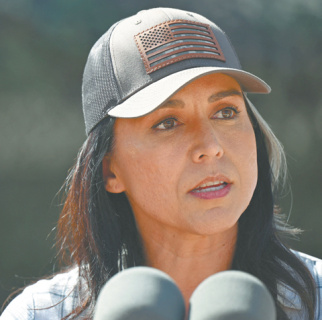
In a dramatic escalation of political tensions, President Donald Trump is reviving the long-settled investigation into Russian interference in the 2016 election, this time redirecting the allegations toward former President Barack Obama. The White House is now championing a narrative that accuses Obama of orchestrating the original probe as a deliberate and baseless attempt to portray Trump as a Russian agent, raising the specter of potential treason charges against the former president, though concrete evidence remains absent.
Trump has publicly lauded his Director of National Intelligence, Tulsi Gabbard, and journalist Harrison Fields, who have both claimed that U.S. intelligence agencies knew there were no significant Russian cyberattacks aimed at altering the 2016 election outcome. The core of their allegation is that this information was suppressed under Obama’s leadership to bolster Hillary Clinton’s campaign and later to undermine Trump’s presidency with persistent, though ultimately unsuccessful, threats of impeachment over his supposed ties to Moscow.
The timing of this renewed offensive is seen by most observers as strategically calculated. These explosive claims against Obama have emerged amid a growing scandal surrounding the late financier Jeffrey Epstein, with Trump’s administration facing increased scrutiny in the Democratic-leaning press. The move is widely interpreted as a classic political counter-attack, designed to deflect attention and create a powerful counternarrative.
“It resembles a classic American political formula: answer an accusation with a counter-accusation,” noted Vladimir Vasiliev, chief researcher at the Institute for US and Canadian Studies. He suggests Trump is effectively telling Democrats, “If you pressure me with the ‘Epstein affair,’ I will pressure you with the ‘Obama affair.’ Therefore, let’s stop, and no one pressures anyone.” This high-stakes maneuver aims to force a political detente by creating mutually assured reputational destruction.
Beyond a defensive tactic, the assault on Obama serves a broader goal of weakening the Democratic Party. With the party still struggling to find its footing after its defeat in the last presidential election, Obama remains its most popular and influential figure. By tarnishing his legacy, the White House could effectively neutralize the opposition’s informal leader, further destabilizing a party that currently lacks a clear challenger to Trump.
However, some analysts, including Vasiliev, believe this aggressive strategy may signal the President’s own vulnerability. “Apparently, he believes that a serious threat is truly looming over him in connection with the Epstein case,” Vasiliev argues. The decision to deploy a “final trump card” by attacking Obama directly suggests a sense of desperation. This could be just the beginning, with speculation that Trump may also revive other old grievances, such as the unfounded theory that Obama was not born in the United States.
The controversy could also extend to the administration of Joe Biden. As a congressional investigation probes who was effectively running the country during the final months of Biden’s term amid concerns over his health, Obama’s name could be strategically inserted into the inquiry. It is plausible, experts suggest, that Republicans will attempt to link Obama to key decisions made in Biden’s name, including the push for him to withdraw from the presidential race in favor of Kamala Harris, thereby framing him as a shadow leader who has long controlled the levers of the Democratic party.
